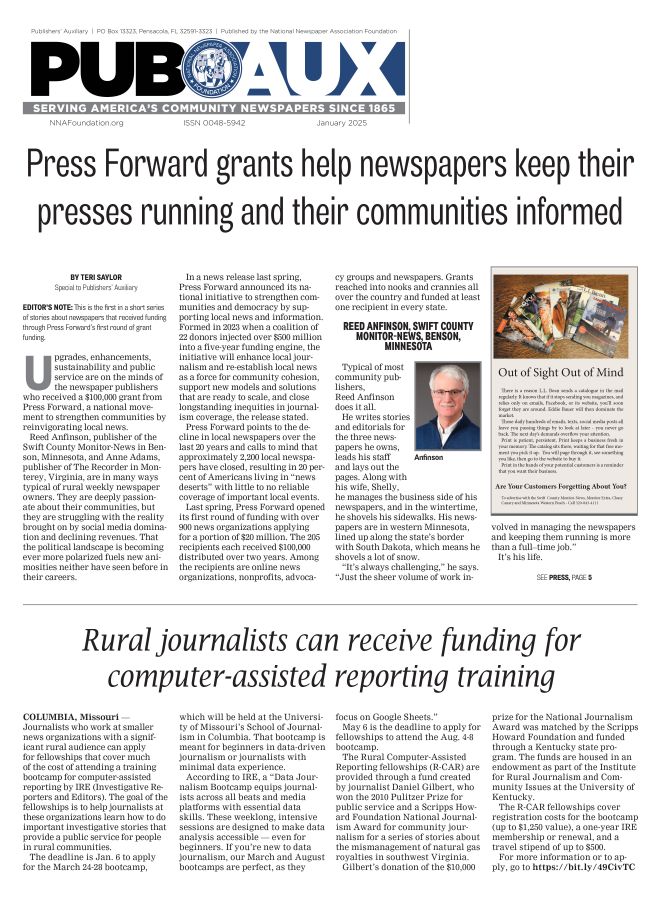Congress to tackle federal tax code
Jul 11, 2017
By Tonda F. Rush
NNA General Counsel/Director of Public Policy
WASHINGTON—Where will the money come from? That is the big question facing the 115th Congress as it tackles the daunting effort to reform the federal tax code. The latest major revision was in the Reagan administration. With scores of exemptions, deductions, write-offs, depreciations and variable rates to calibrate, the code’s revision is not a task for the faint of heart.
But that is what the House Ways and Means Committee, chaired by Rep.
Kevin Brady, R-TX, has set out to do this year. The need is urgent, in his view, to promote the nation’s competitive position in the world. His opening statement in the first formal hearing on tax reform pointed to his two concerns:
“First, our corporate tax rate—now the highest in the industrialized world at 35 percent—is at least 10 to 15 points higher than our competitors. This makes it harder for our businesses to compete globally and create jobs here at home.
“Second, our tax system discourages U.S. businesses from bringing home foreign profits to grow middle-class jobs and middle-class paychecks. Instead, our tax code encourages global U.S. businesses to keep profits abroad to grow foreign jobs and foreign paychecks. At last check, more than $2.5 trillion of U.S. profits are stranded overseas, unable to be affordably reinvested back here in America,” he said.
The committee’s goal is to cut tax rates of entities organized as C corporations to 20 percent and S corporations to 15 percent. The individual tax rate would also be lowered.
But cutting tax rates is not free. Either another source for funding the government must be found or steep program cuts implemented (which is difficult with the simultaneous increases in defense budget also asked of the committee) or the current federal debt of $19.9 trillion will grow.
It is in the first option that community newspaper publishers find discomfort. Will the money come from a tax on advertising?
Eliminating or trimming back the deduction allowed for advertisers would net substantial tax revenue over the short term. Depending upon the degree of change, the federal revenue could be substantially increased over the short term, even though in the long term it might do more harm than good. In a proposal in the latest Congress, former Chair Dave Camp, R-MI, proposed targeting both advertising and research costs by allowing a write off of only half the cost, and amortization of the other half over 10 years. The expected net gain to Uncle Sam: $350 billion.
Brady has not formally proposed trimming advertising expense write-offs—yet. His preferred blueprint for tax reform would be a border adjustability tax that would prohibit American firms from deducting costs of foreign goods and production. But massive opposition from large industrialists like the Koch Enterprises, Inc., has discouraged many Republicans from supporting the border tax.
Some proponents suggest an increase in the federal gasoline tax. Conservative talk show host Hugh Hewitt was a recent backer of that idea in an article in the Washington Post, “Trump Could Make Everyone Happy By Raising This Tax.” Many rural members of Congress, hearing from constituencies who drive for a living or spend major resources on fuel-driven farm machinery are not so sure.
One thing is certain. Any new source of revenue has stakeholders lined up to defend it from the long arm of the law. So the tax-writing committee—and this effort can be initiated only in the House under the U.S. Constitution—is likely to hear lots of ideas, and then put a bill on the House floor with short notice. Any other strategy would spell certain doom, as armies of lobbyists line up to protect the targeted income category.
That is why organizations like the National Newspaper Association, concerned that the advertising tax will slip into the grinder late one night on the House floor, have already begun to line up to let members of Congress know what they consider important in the tax code reform.
NNA President Matt Paxton, publisher of the News-Gazette, Lexington, VA, said tax reform has been on NNA’s Government Relations calendar for several years already.
“We know a whopping tax on advertising looks attractive to some on Capitol Hill, even though the politicians who have been in business know what a bad idea this would be. The pressure is on to do this bill in 2017, before election-year politics heat up. Our job is to make sure people writing this bill understand that raising taxes by slowing economic output is a fool’s errand. For an industry trying hard to protect journalism jobs and keep America informed, letting the government hammer our advertisers would be bad news, for sure, ” Paxton said.
NNA works with The Advertising Coalition, a consortium of advertising-based organizations headed by James Davidson, a long-time Washington policy expert and tax specialist. The Coalition has retained Lawrence R. Klein, Benjamin Franklin professor emeritus of economics and finance at the University of Pennsylvania, and IHS Global Insight, the world-recognized economic consulting firm, to examine the impact of taxes on advertising. He found that economic activity stimulated by advertising generates nearly 20 million of the 133 million jobs in the U.S. and accounts for $5.8 trillion of the $29.6 trillion in U.S. economic output.
NNA joined the Coalition in a letter to Brady and Ranking Member Rep. Richard Neal, D-MA, opposing any suggestion of a change in the depreciation deduction for ads. It also wrote a separate letter targeting a proposal from the old Camp bill that would have exempted businesses spending less than $1 million a year from the new tax treatment. Paxton said some members of Congress have been lead to believe this exemption would protect community newspapers.
“An increasing share of the advertising dollar that supports our news coverage comes in the form of preprinted inserts from large national and regional advertisers, such as Walmart, AutoZone, J.C.Penney, CVS, Walgreens and others. All of these advertisers would be harmed by a change in depreciation schedules for ad expenses,” NNA told the committee.
NNA would also be concerned about a tax on foreign newsprint, which it believes would lead to domestic price increases, and a flat tax of 15 percent on Subchapter S corporations.
Andrew Johnson, co-chair of the NNA Government Relations Committee, said while the idea of a lower tax rate would be attractive to all companies, setting a 15 percent flat tax on many small family businesses would amount to an increase, not a cut.
“This 15 percent tax has to be the ceiling, not the floor,” Johnson said. “It may be hard for people in Washington to grasp it, but many small newspaper publishers don’t make enough profit to pay a 15 percent tax now. We want to make sure that there are still brackets in this new policy so that smaller companies pay smaller taxes.”







